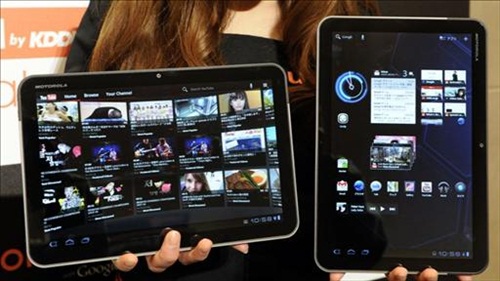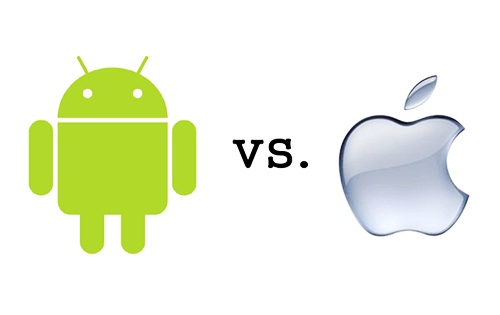In a surprising acquisition move, Google Inc. announced it is buying cell phone maker Motorola Mobility Holdings Inc. for a cool US$12.5 billion in cash. This is Google’s biggest acquisition, easily dwarfs previous biggest deal in 2008 when it purchased DoubleClick for US$3.2 billion. Google will pay a whopping $40 a share for Motorola Mobility, a 63% premium to the cell phone maker’s closing stock price on Friday. The deal may raise many eyebrows because of the quantum of cash offered but then Google has a mind-boggling $35 billion in cash idling in the vault.
The acquisition has the approval of both companies’ boards and is expected to close by the end of this year or early 2012, but it still need to overcome regulatory scrutiny. In what appears to be an aggressive deal after Google lost out to a consortium that included Microsoft Corp., Apple and Research In Motion Ltd. in bidding for thousands of patents from Novell Inc. and Nortel Networks, the search engine leader is now shifting gears into cell phone territory from its successful Android operating system to pushing smartphones itself into the bullish market.
Of course, it wasn’t the Motorola brand that Google was after with the latest acquisition but rather the 14,600 granted patents and 6,700 pending patent applications, worldwide, as of January 2011, on phone technology that Motorola owns – more than 3 times than Nortel. If the acquisition goes through, Google would be a hardware player, something very alien to the company. Sure, Google has committed that with the acquisition, the Android will remain open (platform as usual), for now. But there’s no guarantee that the leader smartphone operating system would remain free forever otherwise the $12.5 billion would go into the toilet bowls.
Since its launch in Nov 2007, Android was a smart move really – by offering the Android free of charge and get the army of smartphone makers such as HTC, Samsung, Sony Ericsson, LG, Acer, Lenovo and whatnot to “test & market” the operating system against Apple Inc.’s iOS, Google would be able to decide whether it was worth going into the smartphone market (and hardware player) eventually. And it’s paying off now with more than 150 million Android devices activated worldwide. Maybe Google would still offer Android for free but those who wish to get some “premium features”, they would have to purchase the new acquired Google-Motorola phone.
But that could be tip of the iceberg as the ultimate goal probably was to convert and “supercharge” other Motorola’s Internet Protocol home devices and video solutions business with Android operating system. Motorola Mobility, a spin-off from Motorola earlier this year, reported a jump of 40% in revenue during its second quarter earnings but swung to a $85 million operating loss due to competition from HTC and Samsung. Hence it would not make sense for Google to pay a cool $12.5 billion for Motorola and did nothing to recover its investment.
Another area that interest Google was in advertising. A better integrated hardware and software, Motorola and Android, would narrow the gap of public perception that Apple’s iPhone with its own iOS is more stable. With Google owning the hardware and software, a better smartphone can rival iPhone for the first time and in the process a better way to make money through phone-advertising can be achieved. Well, at least Google can reduce reliance on manufacturers and operators so that it can dictate how it should do with its advertising methodology.
Some analysts even speculated that after Google acquired all of Motorola’s patents, software and its knowledgable people, it would eventually sell the Motorola brand to the Chinese, just like how IBM sold off their Thinkpad notebook to the Chinese (now known as Lenovo). As for Samsung, HTC, Acer and other players who rely on Android prior to the acquisition – it’s time to diversify and there’s only one option – Windows Phone.
Other Articles That May Interest You …
- Bye Exxon, Apple is World’s Most Valuable Company
- A Brilliant Beautiful Fake Apple Store, in China
- How Did Some Great Companies Get Their Cool Names?
- Microsoft-Skype Deal – 7 Reasons The Sucker Did It
- Apple, Most Valuable Brand – Little Secret Of Its Dictator
- Don’t Trust Gartner’s Smart-Phone Market Forecast
- No More Nanny Schmidt for Google’s Page & Brin
- Top 100 Best Global Brands – Technology Co. Rules

|
|
August 16th, 2011 by financetwitter
|


|

|

|

|

|

|































Comments
Add your comment now.
Leave a Reply